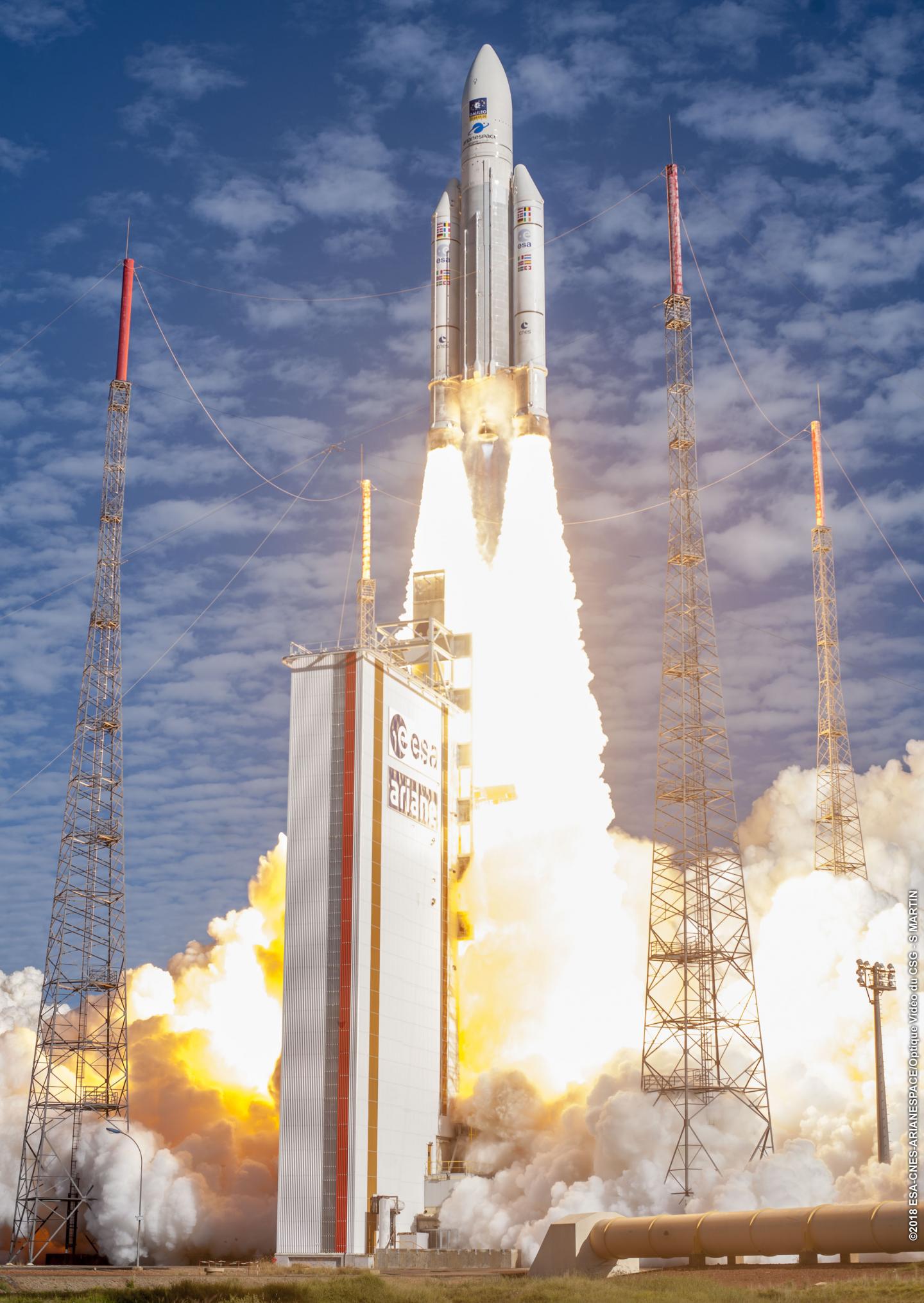
Credit: Arianespace
The University of Luxembourg and the European rocket manufacturer ArianeGroup have signed a collaboration agreement to advance research in the area of rocket propulsion. The two-year project aims to achieve a cost reduction of rocket launches. The research is funded by ArianeGroup and the Luxembourg National Research Fund (FNR).
Cryogenic propellants such as liquid oxygen and liquid hydrogen are widely used in space propulsion systems because they are more efficient and less toxic than other propellants. These fuels need to be stored at extremely low temperatures in order to maintain their liquid state. The rocket engine, its valves and feeding lines must however be able to operate properly when in direct contact with the extremely cold fuels. In order to ensure proper engine function, multiple engine components have to be cooled down to the temperature of the cryogenic fluids before the launch.
A complex process of heat transfer, the so-called chill-down, is initiated prior to the launch to ensure that propellants and the technical system operates at the same temperature. Before ignition, propellants are introduced into the main feed valve of the rocket engine. After the valve has completely cooled down, it can be safely opened and the propellants are supplied to the engine for ignition.
The complex process is challenging for space engineers and aerospace companies, because it is difficult to precisely determine the time required for the chill-down of the engine and its components. “There are currently no accurate models to predict this cryogenic heat transfer process. This forces us to conduct long components tests and use engineering estimations with high margins of safety. This results in expensive tests and long development times. Additionally, this implies increased use of propellants or substitute cryogenics during flight preparation, which increases launch costs,” says Dr. Sebastian Soller from ArianeGroup.
The University of Luxembourg and ArianeGroup have joined forces in a public-private-partnership to investigate, experimentally and by means of computational simulation, the heat transfer process between the cryogen propellant and the valve. “Our team is composed of experts in thermal analysis and Computational Fluid Dynamics. We will first study the process in depth to obtain data for the valve cooling. Then, we will develop reliable and accurate models to estimate the heat transfer process leading to the chill-down used on the Ariane 6 rocket engines,” explains Prof. Stephan Leyer, Head of the Research Unit in Engineering Sciences (RUES). Prof. Stephan Leyer initiated the project together with Post-Doctoral researcher Dr. Edder Jose Rabadan Santana.
The objective of the project is to integrate the obtained heat transfer models into ArianeGroup’s engineering workflow to optimise the design of cryogenic valves and reduce testing costs and development times.
This new collaboration is in line with an increasing number of space-related activities at the University of Luxembourg, such as the upcoming Interdisciplinary Space Master (ISM) starting in September 2019. “With this new project, the University of Luxembourg demonstrates its high-level expertise in space technology by working with the European leader in access to space and also contributes to the recognition of Luxembourg as a space leader,” comments Stéphane Pallage, Rector of the University of Luxembourg.
###
Media Contact
Thomas Klein
[email protected]




